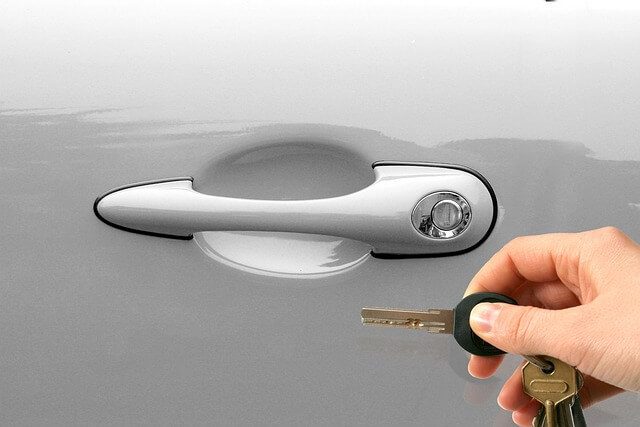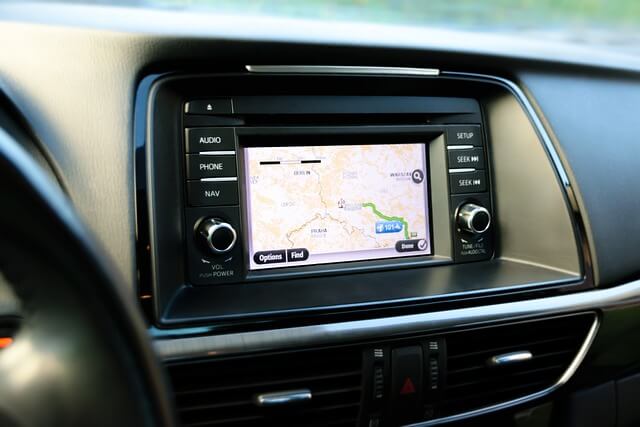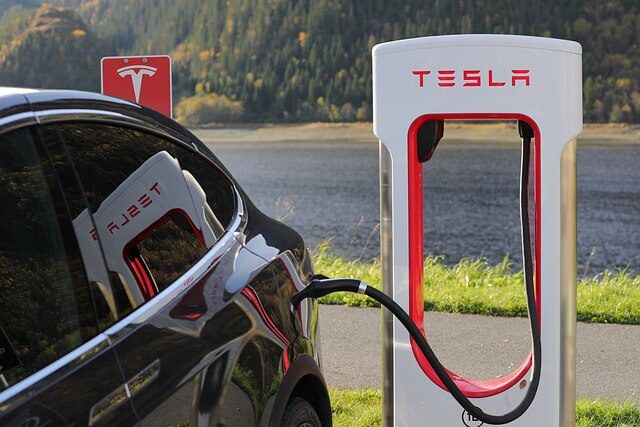
How to Paint Alloy Wheels: A Complete Guide
27 November 2023
Drink Driving in the UK: A Sobering Reality
21 December 2023In a world where fuel prices are constantly on the rise, knowing how to save fuel has become more crucial than ever.
In this guide, we will explore various strategies on how to save fuel while driving, ensuring a smoother journey for both you and your vehicle. Driving efficiently not only benefits your wallet but also the environment. Therefore, will take you through practical and actionable tips to improve your vehicle's fuel efficiency, saving you money and contributing to a greener planet.
In this article
ShowHide- Why you should be looking to save fuel
- How to Save Fuel - Choosing the Right Vehicle
- Maintain Your Vehicle Regularly to Save Fuel
- Tips for Driving More Efficiently and Saving Fuel
- Efficient Driving Speeds: Finding the Sweet Spot
- Smart Route Planning To Save Fuel
- Eco-Friendly Driving Practices That Save Fuel
- Vehicle Load and Aerodynamics
- Use Air Conditioning Wisely
- Fuel Types and Alternatives For Saving Fuel
- Technology and Fuel Efficiency
- Save Fuel by Carpooling and Ride-Sharing
- Public Transportation and Alternatives
- DIY Fuel Efficiency Improvements
- Conclusion
- FAQs on How To Save Fuel
- Q: Can driving at a constant speed really save fuel?
- Q: How much can proper tyre maintenance impact fuel efficiency?
- Q: Are electric vehicles the only eco-friendly option for saving fuel?
- Q: Can DIY aerodynamic modifications really make a difference?
- Q: Are there government incentives for fuel-efficient driving?
- Q: Can using cruise control really make a difference in fuel efficiency?
- Q: How can I track my fuel efficiency progress?
Why you should be looking to save fuel
Using fuel wisely is essential for long-term sustainability, as it is a limited resource. Preserving fuel not only helps you save money, but also makes a positive impact on society. Given the increasing fuel prices, it is important to consider both the environmental and financial implications of saving fuel. Preserving fuel leads to significant cost savings over time.
Environmental Impact
Minimising fuel usage has a direct correlation with reducing emissions, which helps to alleviate the environmental consequences of transportation on our planet.
Personal Savings
By adopting fuel-saving strategies, individuals can achieve significant cost savings, providing a practical solution to navigate the unpredictable fuel prices.
How to Save Fuel - Choosing the Right Vehicle
Opt for Fuel-Efficient Models
When buying a car, it's important to take fuel efficiency ratings into account. Opt for models that prioritise miles per gallon (MPG) to maximise fuel economy and get the most out of your mileage.
Consider Hybrid or Electric Options
Hybrid and electric vehicles provide exceptional fuel efficiency and help decrease reliance on conventional fossil fuels.
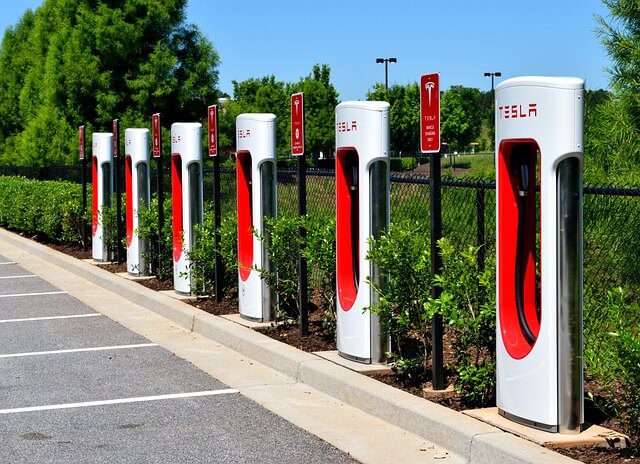
Consider swapping over to an electric car for better fuel efficiency
Maintain Your Vehicle Regularly to Save Fuel
Regular Engine Check-ups
Regular engine maintenance checks are similar to health check-ups for your car. By maintaining the proper functioning of your engine, you can enhance fuel combustion and improve overall efficiency. Make sure to schedule regular maintenance checks for your vehicle, such as oil changes and spark plug replacements.
Tyre Maintenance
Keeping your tyre pressure at the right level can significantly improve your fuel efficiency. When your tyres are not properly inflated, they create more resistance on the road. This means that your vehicle needs to use more energy and fuel to keep moving. Make sure to regularly inspect and inflate your tyres to the recommended pressure levels mentioned in your vehicle's manual. This will help maximise your fuel efficiency.
Air Filter Replacement
Ensuring a clean air filter enhances air circulation, leading to improved combustion efficiency. Make sure to regularly replace your air filter to ensure your engine can breathe easily.
Regular Oil Changes
Regularly changing the oil at recommended intervals helps maintain optimal engine performance, leading to improved fuel efficiency.
Tips for Driving More Efficiently and Saving Fuel
Mastering the Art of Smooth Acceleration
Ensuring seamless acceleration is not only about steering clear of a bumpy journey; it is a crucial approach to enhance fuel efficiency. By gently pressing the gas pedal, you can achieve a smooth coordination between your vehicle's engine and transmission, resulting in improved fuel efficiency.
Sudden increases in speed put additional strain on the engine, resulting in increased fuel consumption. Grasping this concept gives drivers the ability to embrace a driving style that not only boosts fuel efficiency but also prolongs the lifespan of their vehicle.
Using Cruise Control Wisely
Cruise control is an incredibly useful feature for keeping a steady speed while driving on the motorway. Using cruise control can help maintain a consistent speed, resulting in better fuel efficiency for your vehicle. It is important to exercise caution when using cruise control, especially on flat terrains. It is advisable to avoid using it in hilly areas, as the frequent adjustments may result in higher fuel consumption.
Efficient Driving Speeds: Finding the Sweet Spot
The Impact of High Speeds on Fuel Consumption
When you drive at high speeds, the air resistance becomes a major obstacle for your vehicle, requiring it to exert more effort to overcome it. As a consequence, there is a significant increase in fuel consumption. Discovering the ideal speed, typically between 55-65 mph, enables your vehicle to function at its most fuel-efficient level. Not only does this save money on fuel, but it also helps create safer driving conditions.
Navigating Traffic Smartly
Efficiently manoeuvring through congested roads and traffic demands careful consideration to optimise fuel usage. Regularly accelerating and braking in stop-and-go traffic can have a noticeable impact on your vehicle's fuel efficiency. Therefore, be mindful of traffic patterns, ensure a safe following distance, and opt for routes that provide a smoother traffic flow to optimise fuel efficiency.
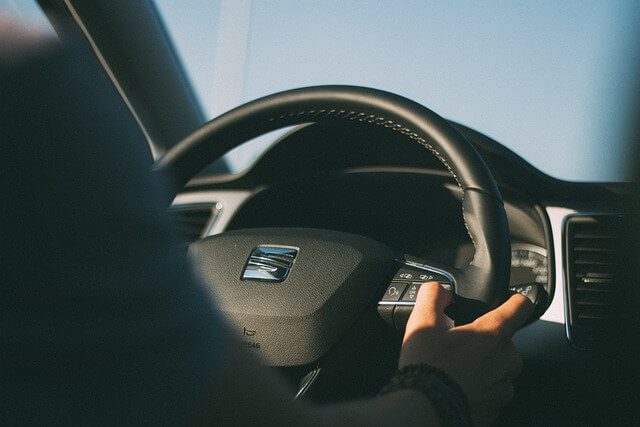
Using efficient driving techniques can help to save fuel
Smart Route Planning To Save Fuel
Avoiding Traffic Congestions
Dealing with traffic congestion can be quite frustrating and it also leads to increased fuel consumption. So take advantage of cutting-edge navigation apps that offer up-to-the-minute traffic updates to select routes with minimal congestion. Although opting for the shortest route may be tempting, there are instances where choosing a slightly longer but less congested route can result in better fuel efficiency. So consider scheduling your trips during off-peak traffic hours in order to minimise congestion and save fuel.
Avoiding traffic congestion can greatly improve your fuel efficiency. Consider planning your trips during less busy times to minimise the amount of stop-and-go traffic you encounter.
Embracing Scenic Routes
Choosing scenic routes not only provides breathtaking views, but it can also be a smart decision for optimising fuel efficiency. These routes typically experience less stop-and-go traffic, resulting in a smoother driving experience and lower fuel consumption. Prior to setting off on your journey, take into account the option of taking the scenic route for a drive that is both more pleasurable and cost-effective.
Eco-Friendly Driving Practices That Save Fuel
Smooth Braking Techniques
Ensuring a smooth braking experience is not only crucial for your safety, but it also serves as an effective way to save fuel. Braking abruptly or forcefully causes your vehicle to transform kinetic energy into heat, resulting in fuel wastage. Take a more gentle approach to braking, allowing your vehicle to naturally slow down over a longer period of time. This will help you save fuel and extend the lifespan of your brakes.
Minimising Idle Time
Leaving your engine running while parked or waiting consumes fuel unnecessarily. When you expect to be stationary for more than a minute, it is more fuel-efficient to switch off the engine. By adopting this practise, we not only save fuel but also help in reducing emissions, which ultimately leads to a cleaner environment.
Vehicle Load and Aerodynamics
Avoiding Excessive Weight
Declutter your car by removing any unnecessary items. Keeping your vehicle free of clutter is important for maximising fuel efficiency and performance.
Roof Racks and Their Impact
Roof racks can have an impact on fuel efficiency due to the aerodynamic drag they create. Only use them when absolutely necessary and make sure to remove them when they are not being used. Additionally, it is advisable to refrain from transporting any unnecessary items that may increase the overall weight of the vehicle and subsequently decrease its fuel efficiency.
Streamlining the Vehicle
Take into account the aerodynamics of your vehicle. It is advisable to keep your windows closed while driving on roads and motorways, as having them open can cause drag and reduce your vehicle's fuel efficiency.
Use Air Conditioning Wisely
Open Windows vs. AC: Finding the Balance
Open windows are actually more fuel-efficient than using air conditioning when driving at lower speeds. Nevertheless, when driving at higher speeds, the fuel efficiency may be reduced due to the drag caused by open windows.
Park in the Shade to Reduce AC Usage
In the warmer months, consider parking in shaded areas to minimise the reliance on air conditioning when you come back to your vehicle.
Fuel Types and Alternatives For Saving Fuel
Understanding Different Fuel Grades
Understand your fuel. Gain a clear understanding of the distinctions among regular, mid-grade, and premium fuels, and select the one that best matches your vehicle's specifications.
Hybrid and Electric Options
Discover the benefits of using clean and alternative fuels, like biodiesel or compressed natural gas, to enhance your driving experience in an environmentally friendly way. In addition, there is a growing trend towards hybrid and electric vehicles due to their improved fuel efficiency and positive impact on the environment.
Advantages and Disadvantages of Each
Consider the advantages and disadvantages of various fuel types to make a well-informed choice that aligns with your driving habits, financial situation, and environmental considerations.
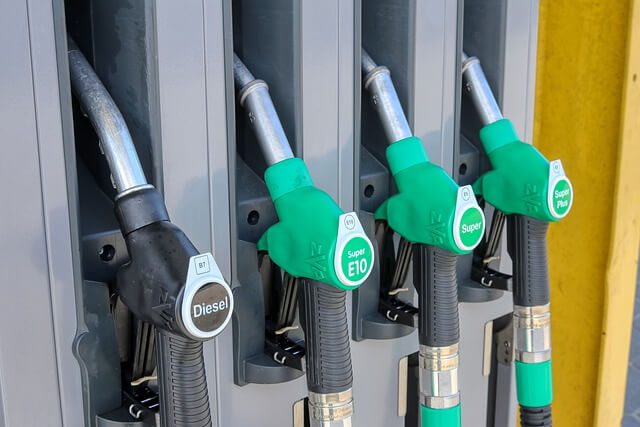
Understand the different grades of fuel that are available for your vehicle and save money and the environment in the long run
Technology and Fuel Efficiency
Fuel-Efficient Driving Apps
Discover apps that offer instant feedback on your driving habits and provide helpful tips for maximising fuel efficiency.
Modern Engine Technologies
Discover the most recent developments in engine technologies that improve fuel efficiency, including direct fuel injection and variable valve timing.
Advanced Fuel Injection Systems
Gain a clear understanding of how fuel injection systems play a crucial role in maximising fuel delivery to the engine, resulting in highly efficient combustion.
Save Fuel by Carpooling and Ride-Sharing
Benefits of Sharing Rides
By carpooling, the number of vehicles on the road is decreased, resulting in a decrease in fuel consumption. Furthermore, it helps alleviate traffic congestion and decreases carbon emissions. Discover the advantages of ride-sharing, decrease the dependence on individual cars and save fuel.
Finding Carpooling Partners
Reach out to your colleagues or neighbours to explore carpooling options. Shared commuting is not just about saving fuel; it also helps to build a strong sense of community.
Ride-Share Apps and Platforms
Discover ride-share apps that facilitate connections between drivers and passengers travelling in the same direction, encouraging eco-friendly transportation.
Public Transportation and Alternatives
Advantages of Public Transport
Using public transport is an environmentally friendly choice that greatly decreases the amount of carbon emissions produced by individuals. Discover the benefits of buses, trains, and other forms of communal transportation.
Commuter Trains and Buses
It's worth considering utilising commuter trains and buses for your daily commute. Using public transport not only helps conserve fuel, but it also alleviates the frustration of navigating through congested traffic.
Eco-Friendly Commuting Options
Consider trying out different ways to get around, like cycling or walking, when you only need to travel short distances. These choices not only conserve fuel, but also encourage a more health-conscious way of living.
DIY Fuel Efficiency Improvements
Homemade Fuel Additives
Discover fuel additives that are said to enhance fuel efficiency through DIY methods. Nevertheless, it is important to be careful and conduct thorough research before attempting any homemade remedies. Although the outcomes may differ, certain vehicle models have demonstrated positive effects from the use of certain additives.
DIY Aerodynamic Modifications
You may want to think about making some easy aerodynamic adjustments to your vehicle to boost fuel efficiency. For example, adding a grille block or using a bed cover can make a difference.
Conclusion
In conclusion, mastering the art of how to save fuel involves a holistic approach. Every little action makes a difference, whether it's improving your driving habits or adopting eco-friendly technologies. Conserving fuel while driving is a shared obligation that commences with personal decisions. By implementing the strategies discussed in this article, you can make a positive impact on the environment while also reaping the benefits of saving money and having a more fuel-efficient vehicle.
FAQs on How To Save Fuel
Q: Can driving at a constant speed really save fuel?
A: Yes, maintaining a steady speed on highways can significantly improve fuel efficiency by reducing the strain on your engine.
Q: How much can proper tyre maintenance impact fuel efficiency?
A: Proper tyre maintenance, including regular pressure checks, can improve fuel efficiency by up to 3%.
Q: Are electric vehicles the only eco-friendly option for saving fuel?
A: While electric vehicles are a popular choice, other eco-friendly options that save fuel include hybrid vehicles and alternative fuels.
Q: Can DIY aerodynamic modifications really make a difference?
A: Some DIY aerodynamic modifications can improve fuel efficiency, but the impact may vary based on the modification and vehicle type.
Q: Are there government incentives for fuel-efficient driving?
A: Many governments offer incentives such as tax credits or rebates for individuals adopting fuel-efficient driving habits.
Q: Can using cruise control really make a difference in fuel efficiency?
A: Yes, cruise control helps maintain a consistent speed, minimising fuel-wasting acceleration and deceleration.
Q: How can I track my fuel efficiency progress?
Numerous smartphone apps offer real-time monitoring and gamification features to track and improve your fuel efficiency over time.
Get in touch for professional Car Body Repairs
We hope you enjoyed reading our article about how to save fuel while driving and found it useful. If you're looking for a professional car body repairs service, then bring your vehicle to our car body shop in Radcliffe near Manchester and our professional technicians will take care of it for you.
In addition, for your convenience, we offer a fully mobile service and can come to you. We cover the whole of Greater Manchester, Lancashire, Cheshire, Merseyside and Yorkshire.
If you’d like to get a price for our professional car body repairs service, then please get in touch with us now on 0161 667 0919 or by filling out our quick quote form to get a free, no-obligation quotation.
We have lots of 5 star reviews on Google from happy customers, so please feel free to check out our reviews.
Or contact our team to arrange a time to bring your vehicle in for an estimate. We look forward to restoring your vehicle and getting you back on the roads!

